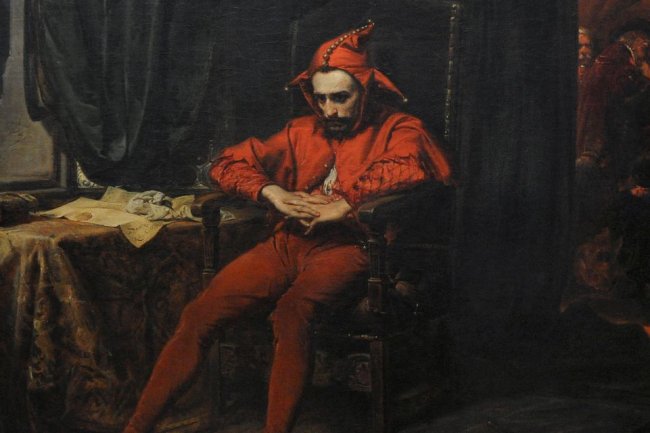History and the New York Times
Leftists warn about threats to democracy during the moments when they’re not attacking it. By James Freeman Aug. 23, 2023 5:45 pm ET Photo: Mark Lennihan/Associated Press Why do so many media folk who constantly warn that our form of government is under attack also constantly promote misleading attacks on our form of government? This week the opinion editors of the New York Times, who seem to care more about particular, arbitrarily selected “democratic norms” than about democracy itself, published an ill-informed case against our constitutional republic and the entire concept of voting. The Times published contributor Adam Grant, an organizational psychologist at the University of Pennsylvania’s Wharton School, who writes: On the eve of the f


Photo: Mark Lennihan/Associated Press
Why do so many media folk who constantly warn that our form of government is under attack also constantly promote misleading attacks on our form of government? This week the opinion editors of the New York Times, who seem to care more about particular, arbitrarily selected “democratic norms” than about democracy itself, published an ill-informed case against our constitutional republic and the entire concept of voting.
The Times published contributor Adam Grant, an organizational psychologist at the University of Pennsylvania’s Wharton School, who writes:
On the eve of the first debate of the 2024 presidential race, trust in government is rivaling historic lows. Officials have been working hard to safeguard elections and assure citizens of their integrity. But if we want public office to have integrity, we might be better off eliminating elections altogether.
If you think that sounds anti-democratic, think again. The ancient Greeks invented democracy, and in Athens many government officials were selected through sortition — a random lottery from a pool of candidates. In the United States, we already use a version of a lottery to select jurors. What if we did the same with mayors, governors, legislators, justices and even presidents?
Having claimed the authority of the ancient Athenians, the psychologist then goes on to make various claims about the alleged virtues of disenfranchising the entire American electorate.
Some readers may wonder why the Times called on Mr. Grant for this assignment. Were all of Penn’s historians away for the summer? Let’s hope that at least a few of them have been reacting with horror at this slipshod justification for shoving U.S. voters out of the political process.
The reason both professional and amateur historians still marvel at the Athenians of the mid-fifth century B.C. is not because the Athenians agreed to surrender all power to leaders chosen by random chance. It’s because the Athenians governed themselves. The citizens of the golden age retained much of the power that today in the U.S. is exercised by mayors, governors, legislators, justices and presidents. The Athenians gathered and voted on the major issues of the day—a direct democracy. Yes, there were public officials for particular tasks but the people maintained enormous power.
The great historian of that age, Donald Kagan, passed away recently and it’s clear that America is already missing him. Here’s an excerpt from a 2003 interview about a Kagan book on the Peloponnesian War. The interviewer was National Public Radio’s Neal Conan, who died in 2021 and is no doubt missed by many NPR listeners:
CONAN: One of the things that makes your account so vivid is the idea of listening to these democratic debates on this hillside in Athens, next to the magnificent Acropolis, and knowing that the plays of Aristophanes are being performed down the street and Socrates is holding court. This is an amazing time.
Prof. KAGAN: It certainly is. I’m glad you caught that excitement, which I feel every time I look into it. You know, when you think of what a small place it was, if people guess at what the total population of Attica may have been--it might have been a total of a quarter of a million or so, that’s all--the number of active citizens--and only adult males were allowed to participate in politics--they couldn’t have been more than 40 or 50,000 people. The decisions were made by Athenians, sitting on a hillside, as you say, overlooking the Agora with the Acropolis looming beyond on the one side, and usually there were probably not more than 6,000 people making the decision, and yet all decisions were made there.
But I mean to say, not only the decision `Shall we go to war or not’--they made that decision--then `How much in the way of resources should we make available?’ They made the decision. `Who should be the generals?’ They made the decision. `What instructions should they have?’ They made the decision. Can you imagine anything so incredibly democratic as that?
Can you imagine trying to use this history as an argument against democracy?
Alas, the golden age of Athenian democracy didn’t last long. That’s a big reason why America’s founders felt that a pure democracy was too unstable. Athenian voters had not delegated that much authority to a small group of officials and so the crowd on the hillside could make vast changes in short order. America’s founders therefore opted for a constitutional republic, in which citizens select their representatives. But in either system voters hold significant power, as they should.
As for leadership, then and now, it’s not merely a matter of luck. Kagan wrote in the Journal in 2014:
In 431 B.C., Pericles of Athens described the character of the great democratic society he wished for his community: A city “governed by the many, not the few,” where in the “matter of public honors each man is preferred not on the basis of his class but of his good reputation and merit. No one, moreover, if he has it in him to do some good for the city, is barred because of poverty or humble origins.”
***
James Freeman is the co-author of “The Cost: Trump, China and American Revival” and also the co-author of “Borrowed Time: Two Centuries of Booms, Busts and Bailouts at Citi.”
***
Follow James Freeman on Twitter.
Subscribe to the Best of the Web email.
To suggest items, please email [email protected].
(Teresa Vozzo helps compile Best of the Web.)
***
What's Your Reaction?

















